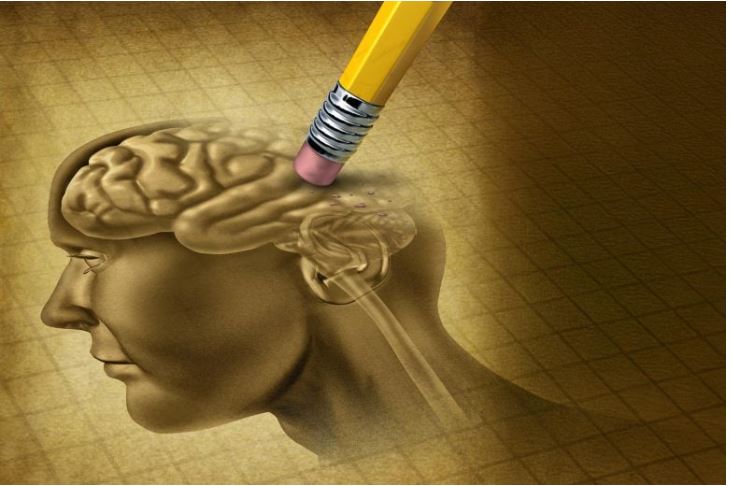


 12:0:39
12:0:39  2025-10-16
2025-10-16  966
966

A new study shows self-reported memory and thinking problems are rising fastest among younger U.S. adults, with social and economic factors playing a major role.
A new nationwide study has found that more U.S. adults, especially those under the age of 40, are experiencing significant problems with memory, focus, and decision-making. The findings were published in Neurology, the journal of the American Academy of Neurology.
“Challenges with memory and thinking have emerged as a leading health issue reported by U.S. adults,” said study author Adam de Havenon, MD, MS, of Yale School of Medicine in New Haven, Connecticut, and a Fellow of the American Academy of Neurology. “Our study shows that these difficulties may be becoming more widespread, especially among younger adults, and that social and structural factors likely play a key role.”
A Decade of Data
To reach these conclusions, researchers examined more than 4.5 million survey responses collected each year between 2013 and 2023. Participants were asked: “Because of a physical, mental, or emotional condition, do you have serious difficulty concentrating, remembering, or making decisions?” Anyone who answered “yes” was considered to have a cognitive disability. The analysis excluded individuals who reported depression and also left out data from 2020, since the COVID-19 pandemic created unusual conditions.
Over the ten-year period, the overall prevalence of cognitive disability in the United States rose from 5.3% in 2013 to 7.4% in 2023, with the first noticeable increase appearing in 2016. Younger adults saw the sharpest change: those under 40 nearly doubled in rate, climbing from 5.1% to 9.7%. Meanwhile, older adults experienced a slight decline. Among people aged 70 and above, prevalence fell from 7.3% in 2013 to 6.6% in 2023.
While the survey is not a measure of cognitive impairment, de Havenon noted the growing prevalence of self-reported cognitive disability in younger adults reflects important public health trends.
Researchers found adults with household incomes below $35,000 consistently reported the highest rates—rising from 8.8% to 12.6% over the study period. By contrast, those with incomes over $75,000 had substantially lower rates, increasing only from 1.8% to 3.9%. For education, rates among adults without a high school diploma rose from 11.1% to 14.3% while rates among college graduates rose from 2.1% to 3.6% over the study period.
Racial and Ethnic Patterns
While most of the respondents were white, rates rose across nearly all racial and ethnic groups:
“These findings suggest we’re seeing the steepest increases in memory and thinking problems among people who already face structural disadvantages,” de Havenon said. “We need to better understand and address the underlying social and economic factors that may be driving this trend.”
“More research is also needed to understand what’s driving the large increase in rates among younger adults, given the potential long-term implications for health, workforce productivity, and health care systems,” de Havenon continued. “It could reflect actual changes in brain health, better awareness, and willingness to report problems, or other health and social factors. But regardless of possible causes, the rise is real—and it’s especially pronounced in people under 40.”
A limitation of the study was that data was gathered through telephone surveys, and people providing responses may not have recalled all information accurately. Another limitation was the broad definition of disability.
Reality Of Islam |
|

Researchers

A well-know

Scientists

As AI-power
 9:3:43
9:3:43
 2018-11-05
2018-11-05
10 benefits of Marriage in Islam
 7:5:22
7:5:22
 2019-04-08
2019-04-08
benefits of reciting surat yunus, hud &
 9:45:7
9:45:7
 2018-12-24
2018-12-24
advantages & disadvantages of divorce
 11:35:12
11:35:12
 2018-06-10
2018-06-10
 6:0:51
6:0:51
 2018-10-16
2018-10-16
 5:58:12
5:58:12
 2021-12-18
2021-12-18
 9:50:37
9:50:37
 2023-02-28
2023-02-28
 3:18:29
3:18:29
 2022-12-24
2022-12-24
 7:26:19
7:26:19
 2022-04-08
2022-04-08
 8:15:37
8:15:37
 2023-02-16
2023-02-16
 8:3:0
8:3:0
 2018-06-21
2018-06-21
 1:34:8
1:34:8
 2022-02-01
2022-02-01
 5:41:46
5:41:46
 2023-03-18
2023-03-18
| LATEST |